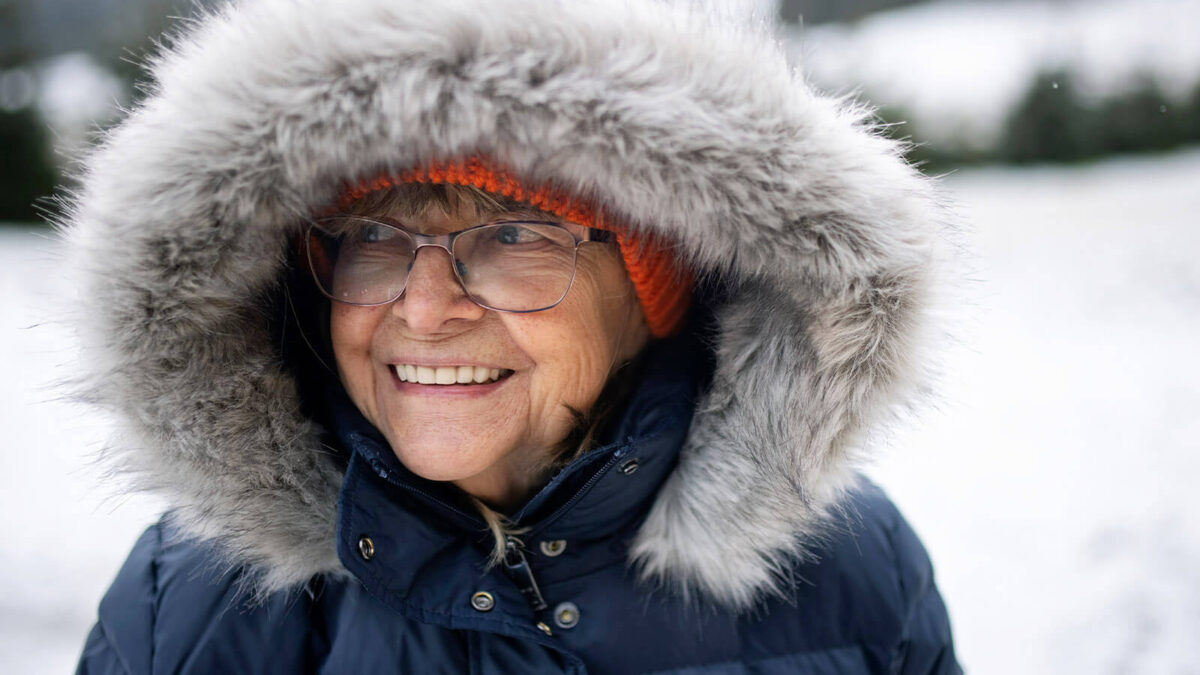Although we’re all more vulnerable to accidents and illness when it’s cold, seniors need to be especially careful. Older adults are more susceptible to the effects of cold weather and can experience a range of health problems as a result.
Cold weather can put additional strain on the heart and cause blood vessels to constrict, which can lead to decreased blood flow to the extremities and increase the risk of hypothermia. In addition, cold weather can exacerbate respiratory conditions such as asthma and chronic obstructive pulmonary disease (COPD).
As such, it’s important for seniors to take extra precautions during cold weather. Here are some tips to help you stay safe and healthy in the winter months.
Eat wholesome food
While winter is often associated with colds and flu, these illnesses can occur all year round. It’s just that the cold air of winter makes one more susceptible to them. Your diet will go a long way in helping you banish those bed-ridden blues, no matter the season.
A diet rich in anti-inflammatory nutrients can bolster your immune system, relieve cold and flu symptoms, reduce inflammation, promote healing, and ward off seasonal respiratory disorders. One of the best ways to get the nutrients you need is with a big pot of old-fashioned chicken soup. A 2020 study conducted by Dr. Stephen Rennard of the Nebraska Medical Center in Omaha found that “Grandma’s soup” decreased both inflammation and common cold and flu symptoms.
Besides chicken, Dr. Rennard’s “Grandma’s soup” contained onions, sweet potatoes, turnips, carrots, celery stems, parsley, pepper, and salt. Varying the veggies will not affect the nutritional value of the soup.
Stay warm
A person’s normal body temperature is between 97°F and 99°F. If your body temperature drops below 95°F, you can become seriously ill. This is called hypothermia, and it can develop before you even know you have it.
You don’t have to be outside to develop hypothermia. It can happen in any cold environment. This condition can increase your risk of a heart attack or damage the liver and kidneys. Symptoms of hypothermia include slow and shallow breathing, clumsiness, a weak pulse, poor balance, poor coordination, drowsiness, and fatigue. Monitor your body temperature and be sure to keep yourself warm enough.
Invest in a heavy coat and quality boots that keep snow from getting close to your skin. Make sure the boots have good traction and non-skid soles. Don’t forget to wear warm socks. If it’s outrageously cold, a set of long underwear worn under your other clothing will give you good protection.
Guard against slips and falls in icy areas
Seniors who are at risk of falling due to age, frailty, or other factors should take extra precautions when walking on icy surfaces during the winter months.
If you use a cane, replace the rubber tip if it’s worn. You can also get a cane with an ice-pick attachment to make outdoor navigation easier. When you go inside, remove your boots and snowy clothing at the door to prevent puddles from forming in the house, which could cause slips and falls.
Sprinkle cat litter or sand on your porch, steps, driveway, and walkway if they are icy or wet. Use it as you go, making sure to distribute the litter on the ice in front of you before walking on it.
Prepare for power outages
Home generators are getting more affordable. They start at about $200 and go up to $20,000 plus installation. If that’s not an option, stock up on flashlights, warm clothing, canned food, extra blankets, and a battery-operated radio. Keeping your cell phone charged with a car charger maintains your connection with friends and family.
Keep your vehicle in good condition
Take your car to a trusted mechanic and have them check the basics. Does your battery need replacement? Is the heater working as it should? Do you need an oil change? If you live in a cold, snowy region, winter tires outperform all-season tires in snow, rain and even on ice.
Cold weather can be a challenge, especially for seniors. These tips will help you prepare for the worst while expecting the best.
Are you tired of shoveling snow or making what seems like endless repairs? If you’d like to use your free time on activities that you enjoy instead, Independent Living could be the answer.
INGLESIDE INDEPENDENT LIVING COMMUNITIES
We may be exactly what you’re looking for. We have designed our communities to meet the needs of people just like you, who are engaged in life and looking to enjoy the advantages of their new freedom as well as the adventures that are waiting ahead.
We think you’ll appreciate our beautiful and spacious apartment homes, first-class amenities and activities and the opportunities you’ll have as you begin your new retirement life.
Call (240) 455-4582 if you have any questions or would like to schedule a personalized tour today.

